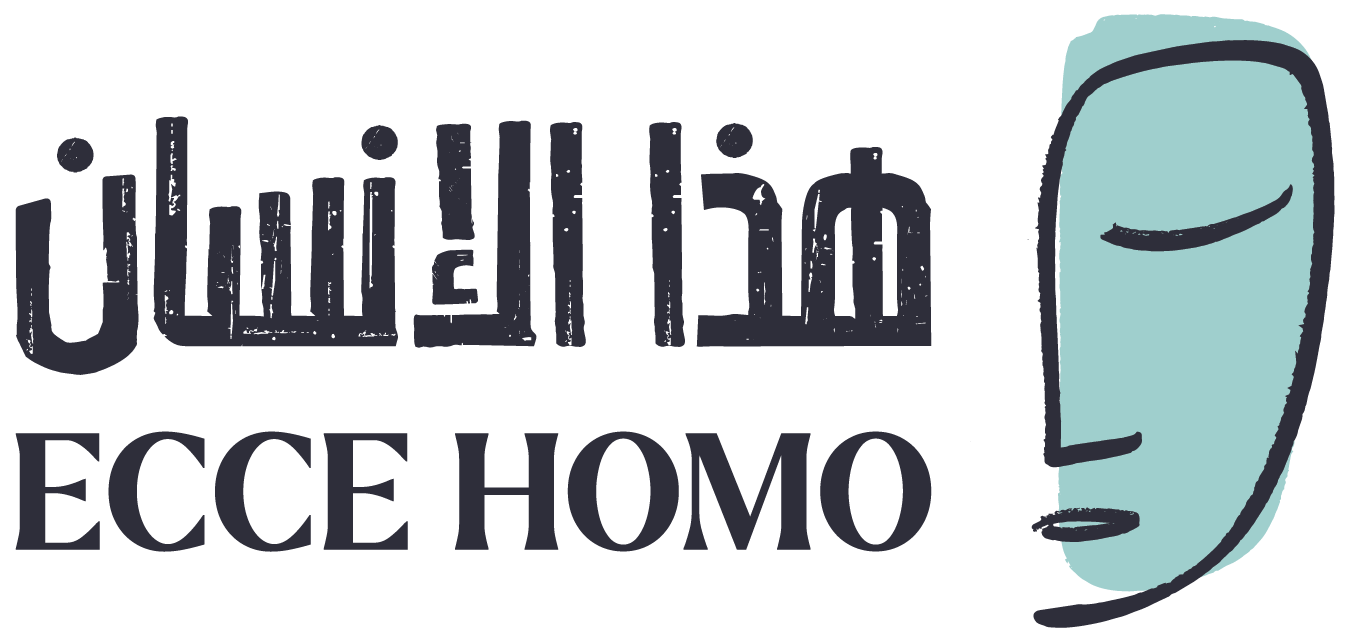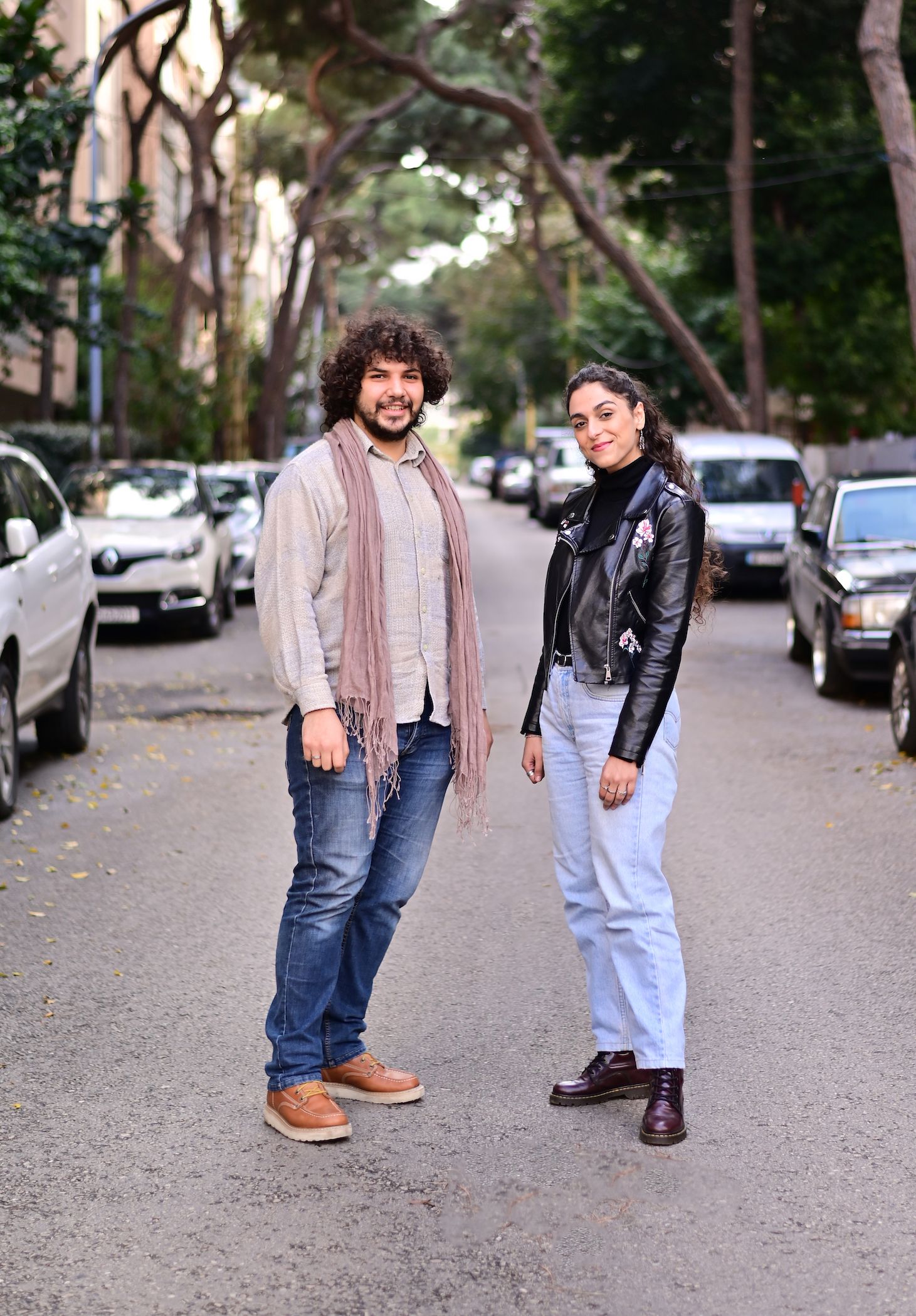
Two Palestinian Paths Cross in Lebanon… Rana and Omar
With the start of the Nakba, Omar's grandparents left Lubya, a Palestinian Arab town located ten kilometers west of Tiberias, to settle down later in what became known as Yarmouk camp in Damascus. Meanwhile, Rana's grandparents came from Al-Tira, south of Haifa, to Sidon, situated in the south of Lebanon. Back then, the two Palestinian refugee families certainly did not know that the Nakba would allow their grandchildren’s paths to cross in another Palestinian refugee camp in Shatila.
Omar was born in 1998. His family consists of his parents, his older twin brother and sister, another brother, in addition to Omar the youngest in the family. He was born in the Yarmouk camp, which is considered the de facto capital of the Palestinian refugee diaspora.
Omar mentions that besides studying, he wandered the streets selling freshly baked cakes, a kind of cheap local dessert, especially on summer holidays. He bought them from two existing factories in Yarmouk, with money he got from his father. Omar also mentions selling Opuntia/pear cactus and how he had to bear the painful pricks of its thorns. He even worked as a shoe vendor at a shoe stall during the month of Ramadan and the holiday period, shouting out loud “for 150… for 150” to attract the attention of the buyers.
Omar does not hide his hatred for some school memories. He describes himself as an average student who only loved the school’s social aspect and his friends. However, his low academic performance and the violence practiced against students at school, together made him hate the school even more. He explains that he could not excel in school due to the fact that his parents were busy with work and the worries of life. This is despite the fact that his mother, who was an aerobic trainer working two shifts, managed to devote a few hours to tutor Omar.
Al Ta3lela, which is a pre-wedding youth party held by the groom's friends, was an unforgettable memory for Omar the child. He remembers sitting next to the singer as he performs and follows the musical beat. He was immersed in the music of the local band played by an organist and a drummer. "It was an impressive scene," Omar mentioned while remembering how he was influenced by these popular singers in the camp. He even recalls the names of well-known performers such as Abu Fakir and Abu Riyah.
Omar used to spend time in his room alone singing and recording his own voice on an old Nokia phone. Later, Omar would listen to what he had recorded. If the result met his expectation, he would save it, otherwise, if he wasn’t pleased with the outcome, he would keep repeating the same song over and over until he was "satisfied" and then he would archive the audio.
Omar's days were a mixture of school and friends, work and its struggles, and the Ta3leela and all its details. When he reached ninth grade, the Syrian revolution has entered its second year, "The Strike of the Mig” was a turning point for the refugees who lived in the Yarmouk camp.
When the notorious airstrike hit the camp in 2012, Omar was with his cousin in the market. The plane appeared and soon disappeared like a ghost after targeting a mosque that was two or three blocks away. Omar's family was not with the idea of escaping: "they did not want to re-live the same tragedy of forced displacement they endured in Palestine before". But the subsequent MiG airstrikes and the growing sense of danger were enough to alter their decision. It is as if all the details of the previous tragedy had to be lived again despite all the years that have passed, Omar’s parents took only a few of their belongings in the hope that they would return soon. "We thought we would be back soon.” Yarmouk was embroiled in the fighting and tens of thousands of its inhabitants were forced to flee.
Omar's family was not with the idea of escaping: "they did not want to re-live the same tragedy of forced displacement they endured in Palestine before". But the subsequent MiG airstrikes and the growing sense of danger were enough to alter their decision. It is as if all the details of the previous tragedy had to be lived again despite all the years that have passed, Omar’s parents took only a few of their belongings in the hope that they would return soon. "We thought we would be back soon.”
The life of the Palestinians was not easy in Syria, but they at least enjoyed the same rights as any Syrian citizen. They had the right to work and study, in addition to a good degree of respect for their culture.
Omar’s family first fled to Khan al-Shayeh camp. They grouped with relatives and then moved to a farm that belonged to Omar’s aunt who lives in UAE - a property adjacent to other farms that later became under the control of FSA. They had to cut down trees and light their wood to bring some warmth to their limbs.
The shelling was almost near the farm so they had to move to Damascus. Unfortunately, they spent the rest of their savings on a small hotel room, the family also took the decision to protect the middle brother who was called up for military service. At last, they reached Lebanon after a tedious trip, and just like many Syrian and Palestinian refugees, they were moving from one place to another until they settled in Sidon for a while, and then moved to Tyre, to Aramoun, to the Sports City, and then to Al-Daouk…
During his high school years, Omar was forced to drop out due to the loss of documents and also because he had to work to support his family. He tried several jobs. He worked in a local bakery and for a street food vendor among other jobs. There was a period where depression dominated his life, "It was something expected after all that we went through." He isolated himself at home until one day hope came knocking at his door: Campji
As for Rana, she was born in Sidon in 1997. She went to a school run by UNRWA and moved between other Lebanese official schools before following her sister’s footsteps and moving to live with her grandmother in Beirut to pursue her education at Beirut Arab University.
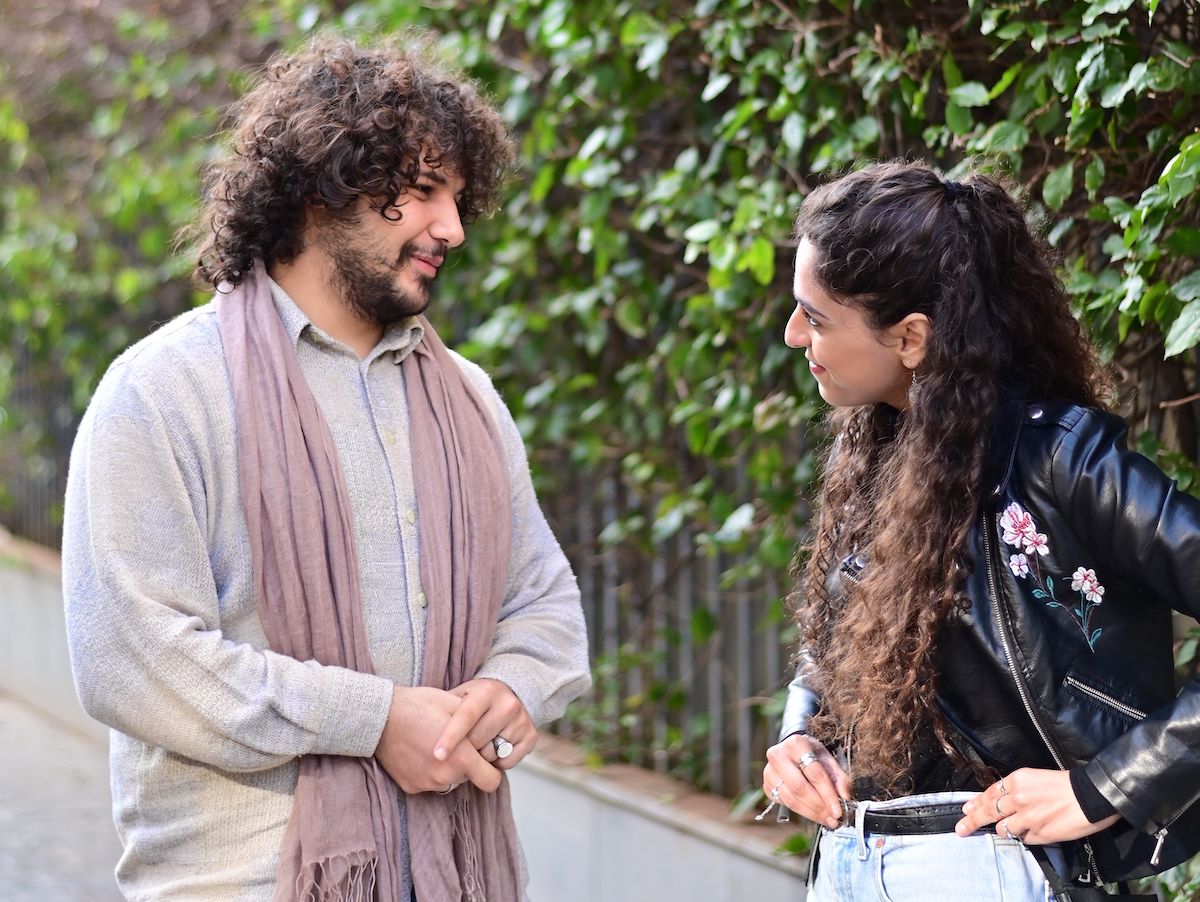
Fairuz's [the famous Lebanese singer] voice was heard in the family’s house many times. Rana thought no one would hear her if she stood at the window and sang, until one day her voice was revealed when she was asked at school: "Are you our neighbor’s friend who keeps singing out loud at the window?”
Fairuz's voice was heard in the family’s house many times. Rana thought no one would hear her if she stood at the window and sang, until one day her voice was revealed when she was asked at school: "Are you our neighbor’s friend who keeps singing out loud at the window?
She was determined to study sociology, but after the first semester at the Faculty of Humanities, her teachers convinced her to choose media studies. And she did, with the help of a scholarship from the European Union. She completed her three years of university. However, Rana believed that the lectures focused on theoretical knowledge rather than practical skills. Rana graduated in 2018 and could not fulfill her desire to complete her master's degree because its fees were too high for her.
Unlike the Palestinians’ situation in Syria, their relatives in Lebanon have been suffering for decades from racist practices that prevented them from studying or working in a wide range of professions. Their lives were made even more difficult as most of them spend their years residing in camps that lack the basic services and infrastructure.
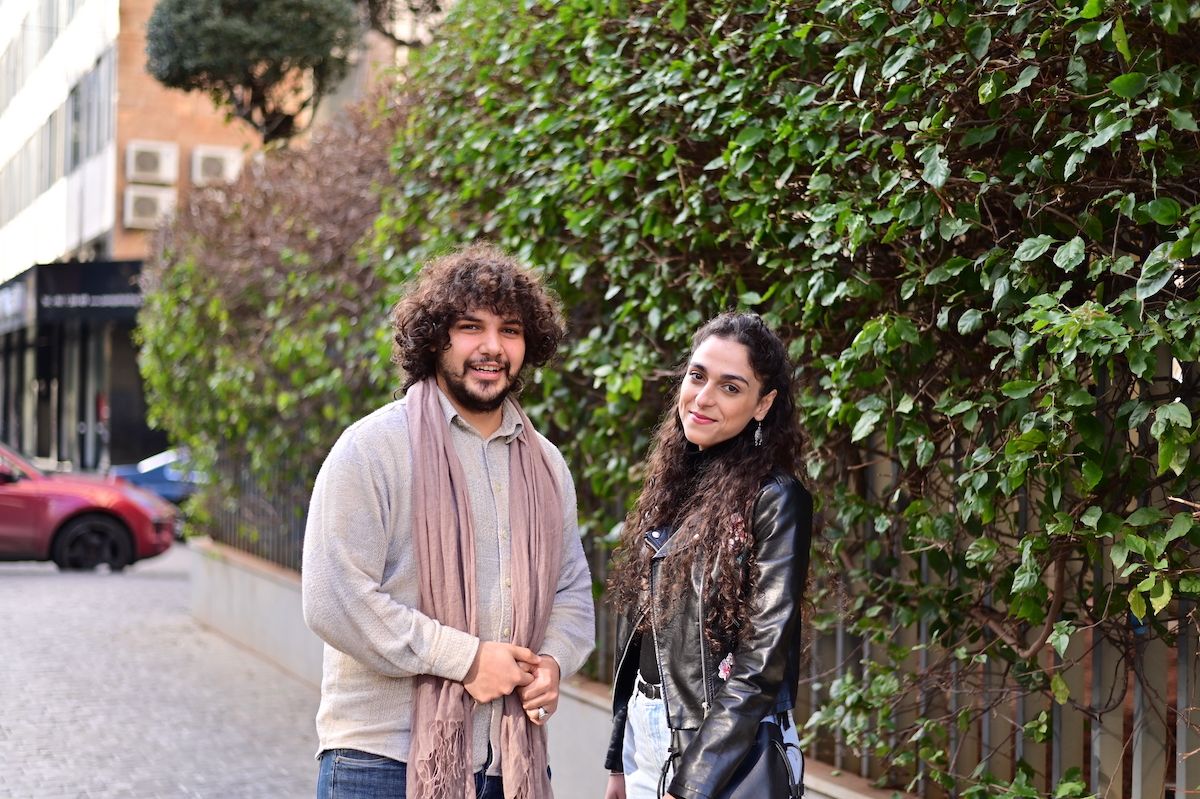
After graduation, "I loved writing articles more than appearing on screens," Rana worked in a well-known library before choosing to focus on writing. In 2020, her career led her to meet Omar in Campji.
Campji is a media project initiated by the Deutsche Welle Academy in Shatila camp. The main objective of the initiative was to attract and train Syrian youth and young women, in addition to Syrian Palestinians and Lebanese Palestinians, and provide the refugees with the necessary tools to voice the needs and suffering of the camps and to teach them how to produce different media reports with a youthful nature.
Campji is a media project initiated by the Deutsche Welle Academy in Shatila camp. The main objective of the initiative was to attract and train Syrian youth and young women, in addition to Syrian Palestinians and Lebanese Palestinians, and provide the refugees with the necessary tools to voice the needs and suffering of the camps and to teach them how to produce different media reports with a youthful nature
In fact, Omar and Rana had a quick encounter through a mutual friend, but their actual meeting was in Campji. Their work in the field of media and Rana’s passion for singing brought them together. Rana and Omar both received training on how to prepare, edit, publish and produce media material. In one of the videos that were posted on social media, Rana appears singing “Ya Fajr lamma tel” (oh dawn, when you rise). After the spread of the video, she took part with two Palestinian bands and they worked together on a new song called “Ana min Wen Bjeblik Dehke” (where can I bring you a laugh from!). In addition to that, she began to learn how to play oud, it is all because she was driven by her passion!. Moreover, Omar sets up and conducts similar training platforms in this type of media work developing the team’s skills.
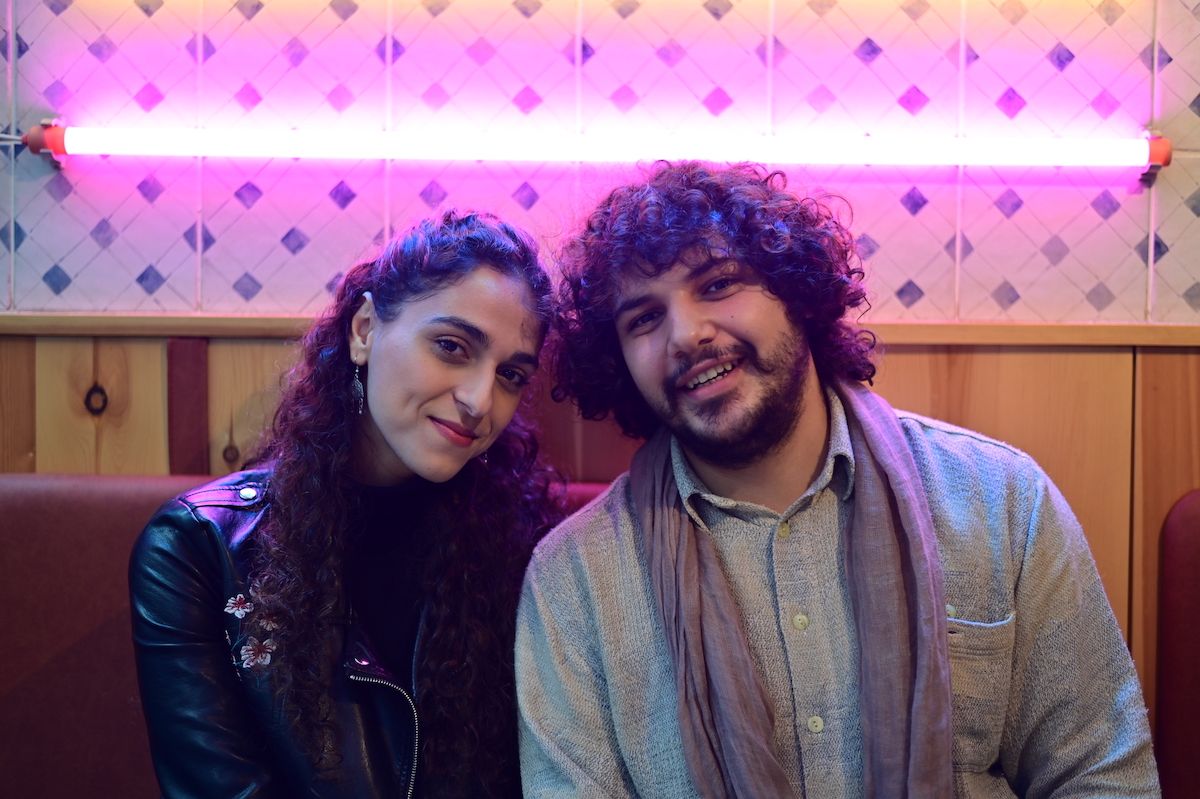
After years of experience in Cambji, Rana believes that university education in general focuses on theory rather than practice. However, they are both essential elements. Rana does not neglect her great passion for music, she was encouraged by Omar to sing.
Omar had commitments with a musical band that plays the violin at the Samoud Children's House in Shatila, he also taught them how to play the oud, He sang with the band and participated in their concerts.
In 2017, something unexpected happened, it was Ramadan and the band was singing in one of the hotels in the presence of Simon Chahine, “none of the attendees gave us any attention.” However, Simon decided that the band take part the next day in Masrah Al Madina, “It was an extraordinary moment.” The theater was full and the audience was interested in our music, or maybe the fact that Omar did not know who Simon is contributed in making the situation less formal.
In 2017, something unexpected happened, it was Ramadan and the band was singing in one of the hotels in the presence of Simon Chahine, “none of the attendees gave us any attention.” However, Simon decided that the band take part the next day in Masrah Al Madina, “It was an extraordinary moment.” The theater was full and the audience was interested in our music, or maybe the fact that Omar did not know who Simon is contributed in making the situation less formal.
The couple Rana and Omar participated in a film; they were aware of their harmony that existed while making the film together. Today, they have an idea for a film that they want to direct in which they share their love for the cinema, they want to work on making their idea come true and Palestine will definitely be part of their musical activity.
Syrian Palestinians have "lost" Al Yarmouk and returning to it seems difficult. A related study states that “the security aspect plays a major role in the decision not to return voluntarily among the refugees, including the residents of Al Yarmouk camp. A political decision may help in overcoming problems such as military service and arrests, but the lack of confidence will prevent such a decision, as it is difficult for the refugees to believe any promises made to them”. In addition, the Lebanese collapse and massive inflation is deepening the tragedy of the Palestinians in the camps of Lebanon, as though they are both destined to share the same origin and the bitterness of fate as well!
